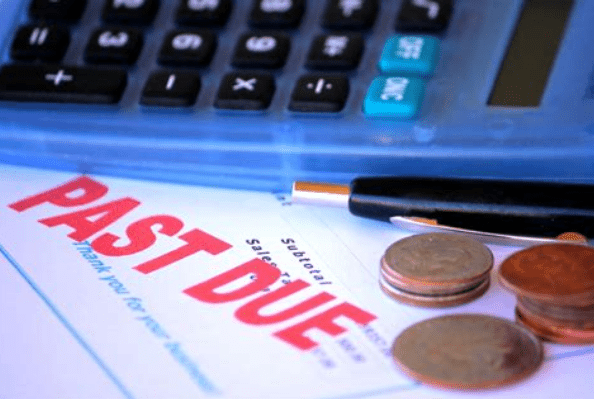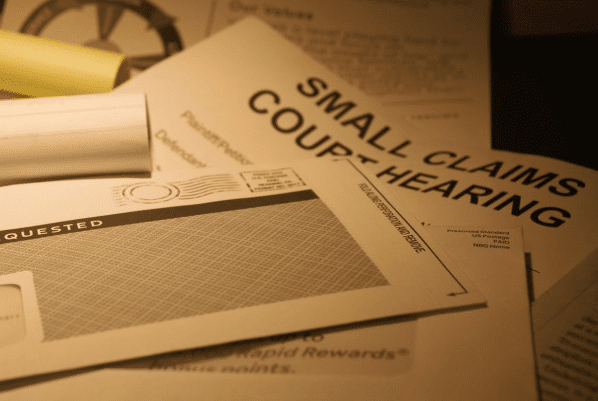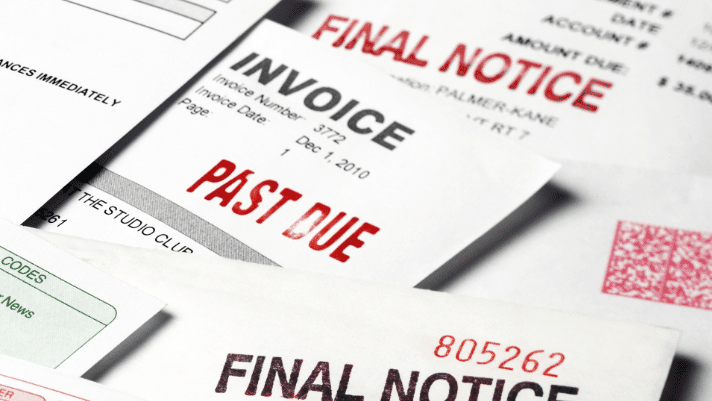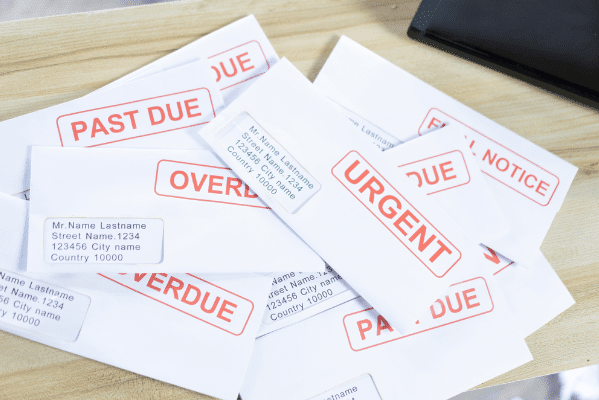If you’ve received a Summons for debt collection in Delaware, it’s crucial to respond before the state’s deadline. For Justice of the Peace cases, you’ve got 15 days, while for all other cases, it’s 20 days. With ZumaZip’s Answer form, responding and defending yourself in court is a breeze. Let’s ensure you’re well-prepared to tackle this challenge!
Receiving a summons alleging debt in Delaware can understandably stir up anxiety. You might feel overwhelmed and intimidated at the thought of contesting the lawsuit in court. Perhaps you’re even feeling scared and uncertain about your next steps. But fret not—ZumaZip is here to lend a helping hand during this challenging time. We’ve gathered essential information to simplify debt collection lawsuits, providing you with a clear understanding of what to expect.
Below, you’ll find valuable insights on how to effectively respond to a summons for debt collection in Delaware. Rest assured, the information in this guide is tailored specifically to debt collection lawsuits in the state. Let’s navigate this process together with confidence!
- Deadlines
- How to Respond
- What is ZumaZip?
- Statute of Limitations in Delaware
- Delaware Legal Aid Organizations
- Key Takeaways
- Guides for Other States
File an Answer to your Delaware debt collection Summons before the deadline
In Delaware, there are two distinct deadlines for responding to a debt lawsuit: 15 days for cases in the Justice of the Peace court and 20 days for all other court cases.
Simply put, if your case falls under the Justice of the Peace court, you have 15 days to respond to the debt Summons. For cases in any other court, you’re granted 20 days to submit your response. Acting before these deadlines is absolutely crucial.
Why? Well, failing to respond could result in the court issuing a default judgment against you. This means the debt collection company would be granted the amount claimed, along with court costs and any other relief sought in the judgment. In some cases, they may even gain permission to garnish your wages.
To respond, you’ll need to file an Answer with the court after receiving the Summons and Complaint, ensuring to send a copy to the plaintiff’s attorney. It’s essential to take action promptly to protect your rights.
Use these Delaware Answer to Summons forms
In a debt collection case, an Answer serves as your explanation, defense, or denial of the claims made against you. Therefore, it’s essential to thoroughly review and comprehend the Summons and Complaint before crafting your Answer document.
With ZumaZip’s Answer form, responding to a Delaware debt lawsuit becomes a quick and painless task. Simply answer a few questions about your case, and let ZumaZip’s software handle the rest. Our Answer form is meticulously formatted, utilizes legitimate legal language, and provides sections for your responses and affirmative defenses.
However, if you prefer to create your own response, you can access Delaware’s forms website, where you’ll find form number CF07 for responding to a Complaint. It’s all about finding the approach that works best for you.
What happens when you demand a Bill of Particulars?
If you request a Bill of Particulars from the plaintiff in a debt collection case, they must serve you with a detailed Bill of Particulars within 15 days, starting from the date of mailing (with the first day being counted). Typically, plaintiffs use a Bill of Particulars form provided by the court, specifically CF10BP.
To comply, the plaintiff must:
- Mail the original Bill of Particulars to the Court handling the case, accompanied by a notarized statement detailing how it was served on you, the defendant.
- Mail a copy directly to you.
The Bill of Particulars must be in writing and explicitly outline the basis for the claim, along with how the alleged amount owed was calculated.
If the plaintiff fails to meet these requirements, you have the option to file a motion with the court requesting an order compelling them to comply. This motion must be submitted within 5 days after the deadline for serving the Bill of Particulars has passed. It’s essential to ensure the plaintiff adheres to the rules set forth by the court.
You do not have to pay an Answer filing fee in Delaware
In Delaware, you are not required to pay a filing fee to respond to a debt collection lawsuit. You simply need to complete an Answer and mail it to the court within 15 days (for Justice of the Peace cases) or 20 days (for all other cases) of receipt of the Summons.
If you decide to file a counterclaim or third party claim, expect to pay a filing fee. In Delaware, the fee to file a counterclaim is $300. The same $300 filing fee applies to a third party claim. This is because, in Delaware, the filings of counterclaims, cross-claims, or third-party claims are charged at the same rate as filing a new case.
How to respond to a debt collection lawsuit in Delaware
When you are sued by a debt collection company, it is quite common to feel uneasy and somewhat overwhelmed at the thought of going to court against a big debt collection company. Do not give into this fear and anxiety. You need to be proactive and make sure you respond to the summons. Simply ignoring the summons is not recommended since it is simply a one-way ticket to a default judgment against you. Once that happens, the debt collection company holds all of the proverbial cards and can initiate the garnishment of your wages and other adverse actions.
So, here are the steps you need to take to respond to a debt collection lawsuit in Delaware.
1. Create an Answer
The first step is to create your Answer. In this document you respond to the Complaint. First, you’ll need to put all of the relevant case information on the document.
Gather all of the information that’s in the Complaint and Summons and add it to your Answer, including:
- Your name, address, and other pertinent personal information
- Information on the plaintiff. That is, the company who is suing you and their attorney representing them.
- The name of the court that the case is in in the State of Indiana, the address of the court, etc.
- Identifying information: the case number, index number, civil number, or whatever the court uses to identifies your case
- The amount of the lawsuit
- Other relevant case information
ZumaZip helps you gather this information.
This information helps the court now what case the document refers to.
2. Respond to the each allegation listed in the Complaint
In the Answer, you respond to every paragraph in the Complaint. You can choose one of three options:
- Admit — Choose Admit if you agree with everything in the paragraph.
- Deny — Choose Deny if you disagree with something in the paragraph.
- I Don’t Know — Yes, this is a legit option. Choose “I don’t know” if you don’t have enough information to admit or deny the allegation in the paragraph.
ZumaZip makes it easy to respond the right way.
In Delaware, you can also choose to request a jury trial and request a Bill of Particulars. A Bill of Particulars is a document you can request the debt collector produce to prove you owe the debt. Often times when you request this, they can’t actually prove anything.
3. Mail the Answer Form.
You need to complete and mail the Answer form within 15 days of being served with the Summons for Justice of Peace cases and 20 days for other cases. It is extremely important to mail the form within this time period because if the court does not receive a copy of the Answer in a time, they could move forward with entering a default judgment against you. Do not let this happen. Make sure the Answer is filled out and mailed within the deadline, commencing from the date you were served with the Complaint.
ZumaZip mails the Answer for you.
4. Consider filing a counterclaim
Assessing the specifics of your situation, it might be beneficial to file a counterclaim against the plaintiff. You can initiate a counterclaim when you have valid grounds to believe that the plaintiff owes you money instead. For instance, if you’ve experienced harassment or threats from the debt collector, you might seek compensatory damages from the debt collection company. However, remember that a counterclaim must be filed at least 5 days before the trial date (excluding holidays and weekends). It’s a strategic move that could potentially shift the balance in your favor.
5. Research affirmative defenses
If you opt to challenge the debt collection lawsuit and request a trial, it is important to research any potential affirmative defenses that may apply to your case. Examples of common affirmative defenses used in debt collection lawsuits include:
- Wrong Defendant – The debt collection company sued the wrong person (i.e. you are not the actual owner of the delinquent account).
- Satisfaction – this affirmative defense states that the amount alleged to be owed has already been paid.
- Statute of Limitations Expired – This affirmative defense is most effective when a debt collector is attempting to collect on an old debt. It is important that you affirmatively raise the statute of limitations as a defense since a court will not know whether the statute of limitations expired when the debt collection company filed its lawsuit against you.
ZumaZip helps you make the right defense the right way.
What is ZumaZip?
ZumaZip is your ally in battling debt collectors, simplifying the entire process.
With ZumaZip, you can respond to debt lawsuits, correspond with collectors through letters, and even negotiate debt settlements.
Our Answer service is a user-friendly web-app that guides you through each step, asking all the essential questions to complete your response. Once done, our team will review your document, including an attorney if needed, and handle the filing for you. It’s a hassle-free way to take charge of your financial situation.
Statute of Limitations on Debt in Delaware
It is important to have a general understanding of the statute of limitations since it governs the amount of time a debt collector has to take legal action against you concerning an unpaid debt. Once the statute of limitations expires, a debt collector is generally unable to pursue a lawsuit against you in court. Though, it does not mean a lawsuit cannot be filed against you. Rather, if a debt collector files a lawsuit after the statute of limitations expired, you need to raise this issue as an affirmative defense.
The statute of limitations starts when you fail to make your last payment. In Delaware, the statute of limitations expires after three years have passed from this date for most types of debt.
| Debt Type | Deadline In Years |
|---|---|
| Credit Card | 3 |
| Medical | 3 |
| Student loan | 3 |
| Auto Loan | 3 |
| Mortgage | 3 |
| Medical | 3 |
| Personal loan | 3 |
| Judgment | 5 |
| Source: Del. Code tit. 10 § 5072 and § 8106 |
Delaware Legal Aid Organizations
If you need help defending yourself in a debt collection lawsuit in Delaware, there are organizations offering assistance at little-to-no-cost to Delaware residents. These organizations include:
Community Legal Aid Society, Inc.
CLASI offers civil legal assistance to Delaware residents who have low incomes, disabilities, and/or who are 60 years of age or older.
Address: 100 W. 10th Street, Suite 801, Wilmington, DE 19801
Delaware Volunteer Legal Services
DVLS consists of volunteer attorneys who provide legal assistance to low-income individuals.
Address:100 West 10th Street, Suite 203, Wilmington, DE 19801
Legal Services Corporation of Delaware, Inc.
LSCDI offers legal assistance to low-income individuals in civil matters such as bankruptcy petitions and advice, consumer problems, housing problems, and unemployment benefit problems.
Address:4601 Concord Pike, Wilmington, DE 19803
Limited Legal Assistance Program
The LLAP is coordinated through the Administrative Office of the Courts and is sponsored by the Delaware State Courts, the Delaware State Bar Association, Delaware Volunteer Legal Services, Inc., Community Legal Aid Society, Inc., Legal Services Corporation of Delaware, Inc., Widener University School of Law, and the Delaware Paralegal Association.
Delaware Court Locations
Courts in Delaware are based in the three major counties: New Castle, Kent, and Sussex. Within each county is a set of courts that possess jurisdiction over different legal matters. The Delaware court system is unique so it is important to understand whether the debt collection agency actually filed the lawsuit with the proper court.
There is a Justice of the Peace Court, which is considered to be the “entry level” court and empowered to oversee cases where the amount in dispute in a civil matter is less than $15,000.
There is also the Court of Common Pleas, which possesses jurisdiction over civil cases involving an amount in dispute between $15,001 and $50,000.
In addition to the Court of Common Pleas, there is the Superior Court, which is Delaware’s court of general jurisdiction. The Superior Court possesses original jurisdiction over civil cases, with the exception of “equity” cases.
Key Takeaways
In summary, here is what you need to do to effectively answer a summons for debt collection in Delaware.
Deadline to file an Answer for Justice of the Peace courts: 15 days.
Deadline to file an Answer for all other courts: 20 days.
Do these steps:
- Decide how you want to respond to each paragraph
- Review the Complaint and determine whether you can assert any affirmative defenses
- Appear in court on the date and time provided by the court if you opt to contest the debt collection lawsuit.
What is ZumaZip?
ZumaZip is a convenient solution designed to streamline your response to a debt collection lawsuit. Here’s a breakdown of what you can expect when you use ZumaZip:
Firstly, you’ll access our user-friendly web application, which guides you through the process step by step. You’ll be prompted to answer a series of questions related to your specific situation. Once you’ve completed the questionnaire, you have the option to either print out the finalized forms and mail them to the appropriate courts yourself, or you can opt to utilize ZumaZip’s services to file them on your behalf. Additionally, if you choose this option, an attorney will review your document for added peace of mind.
If you’re seeking guidance on how to effectively respond to a debt collection lawsuit, ZumaZip can provide the assistance you need. Feel free to explore our FAQs for more information on what ZumaZip has to offer.
What if I haven’t been sued yet?
If you’ve only received a collections notice, but not a lawsuit, the best way to respond is with a Debt Validation Letter. When a debt collector contacts you in any way, whether it’s by phone or mail, you can respond by formally requesting a debt validation with a Debt Validation Letter . This letter notifies the collector that you dispute the debt and forces them to provide proof you owe the debt. They can’t call you or continue collecting until they provide validation of the debt. This flowchart shows how you can use a Debt Validation Letter to win.
Get started with a Debt Validation Letter here.
How to Answer a Summons for debt collection in all 50 states
Here’s a list of guides on how to respond to a debt collection lawsuit in each state:
- Alabama
- Alaska
- Arizona
- Arkansas
- California
- Colorado
- Connecticut
- Delaware
- Florida
- Georgia
- Hawaii
- Idaho
- Illinois
- Indiana
- Iowa
- Kansas
- Kentucky
- Louisiana
- Maine
- Maryland
- Massachusetts
- Michigan
- Minnesota
- Mississippi
- Missouri
- Montana
- Nebraska
- Nevada
- New Hampshire
- New Jersey
- New Mexico
- New York
- North Carolina
- North Dakota
- Ohio
- Oklahoma
- Oregon
- Pennsylvania
- Rhode Island
- South Carolina
- South Dakota
- Tennessee
- Texas
- Utah
- Vermont; Vermont (Small Claims court)
- Virginia
- Washington
- West Virginia
- Wisconsin
- Wyoming
Guides on how to beat every debt collector
Hey there! Facing off against a debt collector can feel like a daunting challenge, but fear not! We’re here to help you navigate through it all with our handy guides designed to assist you in beating every debt collector you encounter. Whether you’re facing a new lawsuit or dealing with a persistent collector, we’ve got your back. Stay positive, stay informed, and let’s tackle this together!
- Absolute Resolutions Investments LLC
- Accredited Collection Services
- Alliance One
- Amcol Clmbia
- American Recovery Service
- Asset Acceptance LLC
- Asset Recovery Solutions
- Associated Credit Services
- Autovest LLC
- Cach LLC
- Cavalry SPV I LLC
- Cerastes LLC
- Colinfobur
- Covington Credit
- Crown Asset Management
- CTC Debt Collector
- Cypress Financial Recoveries
- Delanor Kemper & Associates
- Eagle Loan of Ohio
- Educap
- Estate Information Services
- FIA Card Services
- Forster & Garbus
- Freshview Solutions
- Fulton Friedman & Gullace LLP
- Harvest Credit Management
- Howard Lee Schiff
- Hudson & Keyse LLC
- Integras Capital Recovery LLC
- Javitch Block
- Jefferson Capital Systems LLC
- LVNV Funding
- Mannbracken
- Mariner Finance
- Medicredit
- Michael J Adams PC
- Michael J Scott
- Midland Funding LLC
- Mullooly, Jeffrey, Rooney & Flynn
- Mountain Land Collections
- MRS Associates
- National Collegiate Trust
- Nationstar Foreclosure
- Northstar Capital Acquisition
- NCEP LLC
- NRC Collection Agency
- OneMain Financial
- Palisades Collection LLC
- Pallida LLC
- Paragon Revenue Group
- Pinnacle Collections Agency
- PMAB LLC
- Portfolio Recovery Associates
- Provest Law
- PYOD LLC
- Reunion Student Loan Finance Corporation
- Revenue Group
- Regents and Associates
- RSIEH
- Salander Enterprises LLC
- Second Round Sub LLC
- Security Credit Services
- Sherman Financial Group
- Suttell and Hammer
- T-Mobile
- Transworld Systems
- Tulsa Teachers Credit Union
- UCB Collection
- Velo Law Office
- Velocity Investments
- Waypoint Resource Group
- Weinberg and Associates
- Wolpoff & Abramson
Settle your medical debt
Having a health challenge is stressful, but dealing medical debt on top of it is overwhelming. Here are some resources on how to manage medical debt.
- Am I Responsible for My Spouse’s Medical Debt?
- Do I Need a Lawyer for Medical Bills?
- Do I Need a Lawyer to Fight Medical Bill Debt?
- Does Bankruptcy Clear Medical Debt?
- How Much Do Collection Agencies Pay for Medical Debt?
- How to Find Medical Debt Forgiveness Programs
- Is There a Statute of Limitations on Medical Bills?
- Medical Debt Statute of Limitations by State
- Summoned to Court for Medical Bills — What Do I Do?
- Summoned to Court for Medical Bills? What to Do Next
Stop calls from Debt Collectors
Do you keep getting calls from an unknown number, only to realize that it’s a debt collector on the other line? If you’ve been called by any of the following numbers, chances are you have collectors coming after you, and we’ll tell you how to stop them.



































